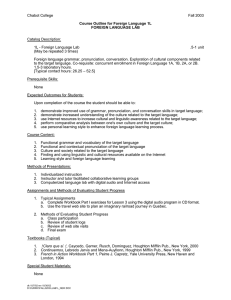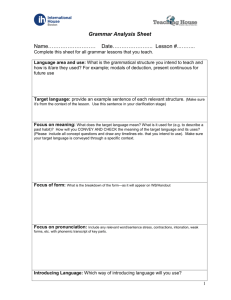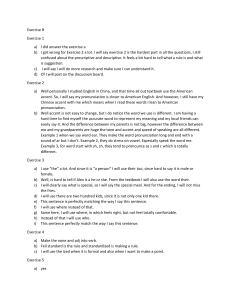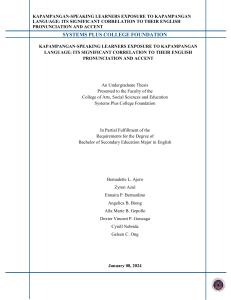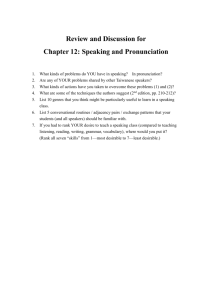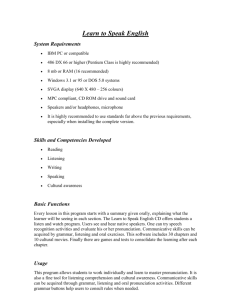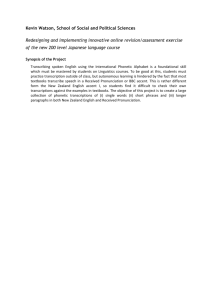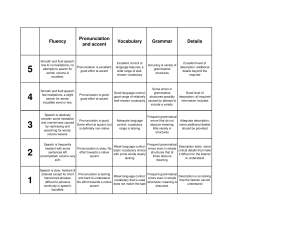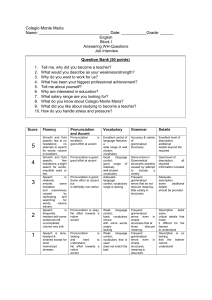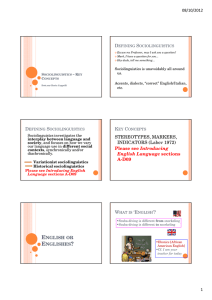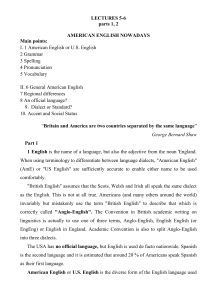Socio 11- Questions' bank2
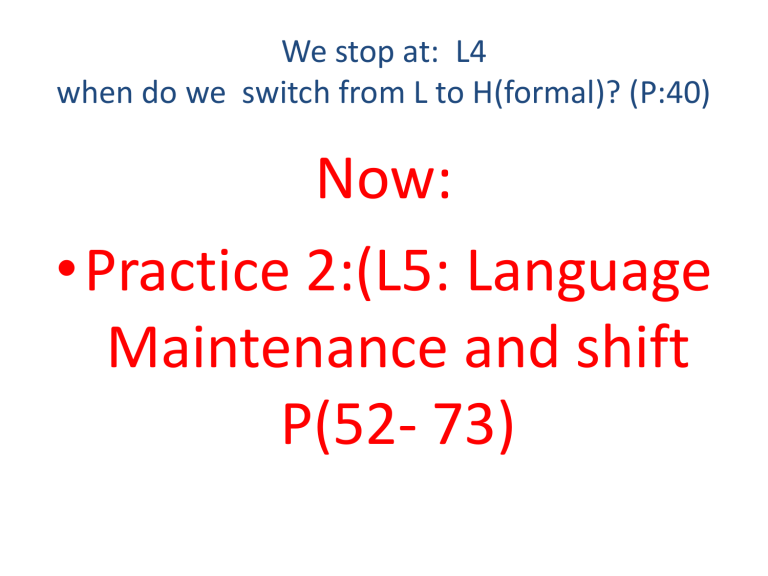
We stop at: L4 when do we switch from L to H(formal)? (P:40)
Now:
•
Practice 2:(L5: Language
Maintenance and shift
P(52- 73)
What are the reasons for choosing a particular code or variety In multi lingual community?
May be:
Domains like :
1-participants ( age- gender- ethnicity )
2.setting( place- situation )
3. topic( formal or informal )
4. feeling( comfortable or not )
5. relation( far or close )
Do economics and political factors affect Language choices?
• Why gradually migrants minorities stop using their mother one?
Because, the language of wider society dismiss or replace the minority language mother tongue.
Schools, job, prestige, economic, social comm.
Threatened by large communities is the sound differently
P:54
• Why Some time language shift without migration but, it happens within a community?
• 1Political
(When a group supported by political power
• 2-Economics
(Farm replaced by industry… job needs
3-Use majority language at school and transactions
4- When majority group move physically
5- Some see this normal to become multilingual communities
6-The group decrease by war and diseases
•
Language Death and Language Loss (P:58)
• How langugae death and Loss happened?
• Because of the death of people through disease introduced by European or exterminate ةدابا massacre ةحبذم
• Then their indigenous language died with them.
• They disappear under threat.
Discuss
• What is the different between language death and shift?
• Bilingual is necessary cause for L shift, discuss
• people see it is not good step to activate their ethnic L(L5- slide 23)
When Rapid shift occurs?
• When people go madly to develop their 2nd language in a society where the knowledge is wanted to success.
• Young mobile people are shift fastest.
• It happened through women and men depend on where the job are found.
• Because they get the advantage of the new jobs offered by industrial changes.
• Demographic Factors(L live long in rural areas than Urban)
• Tv…schools
Regional and social dialects(P:127)
• When a person speaks dialect what does this reflect?
• membership of a group.
• social identity ( social status, gender, age.(
Accent-Dialects accent way of Pron. Also, accents are distinguished from each other by pronunciation dialect linguistic varieties which are distinguishable by their vocabulary, grammar and pronunciation
(British and American English)
How do differences in pronunciations discovered?
• When the native speakers of for example English meet with
English speakers from other nations who speak English
What is (
RP
) stand for”
• It is an abbreviation for Receive Pronunciation
•
It is the accent of the best educated and most prestigious members of English Society.
The accent of the Royal court.
Social Dialect-P: 137 (L5-13slide)
• Relate to the social group of the speaker such as education, occupation, income level
(upper-class English, middle-class English and lower-class English
• Q Is there a relationship between one's language and one's social identity?
The language one uses often reflects one's social identity and education
socioeconomic background
Standard English P:137
• the different way to speak acceptable standard language where a little amount variation in grammar.
Define Sharp Stratification?
• it refers to the pattern that certain pronunciation features h-such as and grammatical features are dropped.
• divide speaking communities sharply between the middle class and the lower classes.
What is Social Class Dialects(P: 140)
• Usages of social class or social division to differ between people who have:
• Prestige
• Wealth
• Well education
• Family background (not wealth) aa child from this family may be poor but respectful
What does class mean?:
• It means a group of people share same economics and social status
• Social Ladders??????????
Compare :Vernacular and standard L by examples?L8-slide 5
• Lower class drop some letters as (h)
• So, grammatical and pronunciation patterns have a relation with social groups
• 1. the way we speak reflect our social background.
• 2. linguistics variation as seen by sociolinguistics differ from social group to another.
• 3.the linguistics variation features appear in: pronunciation of suffix -ing and dropping –H and in vernacular grammar
• 4. social dialects divided communities bw middle and lower(working) class. And are stable
• 5.Also you discover their gender, age
. do women and men speak differently?
Do children speak differently from adults Is it yes? Or No?
• 1. linguistic form use by women differ from men.
• Linguistic behavior of women differ from men(in politeness )
• Women and men use different spech function,
• But we are going to discuss only: NO(1)
